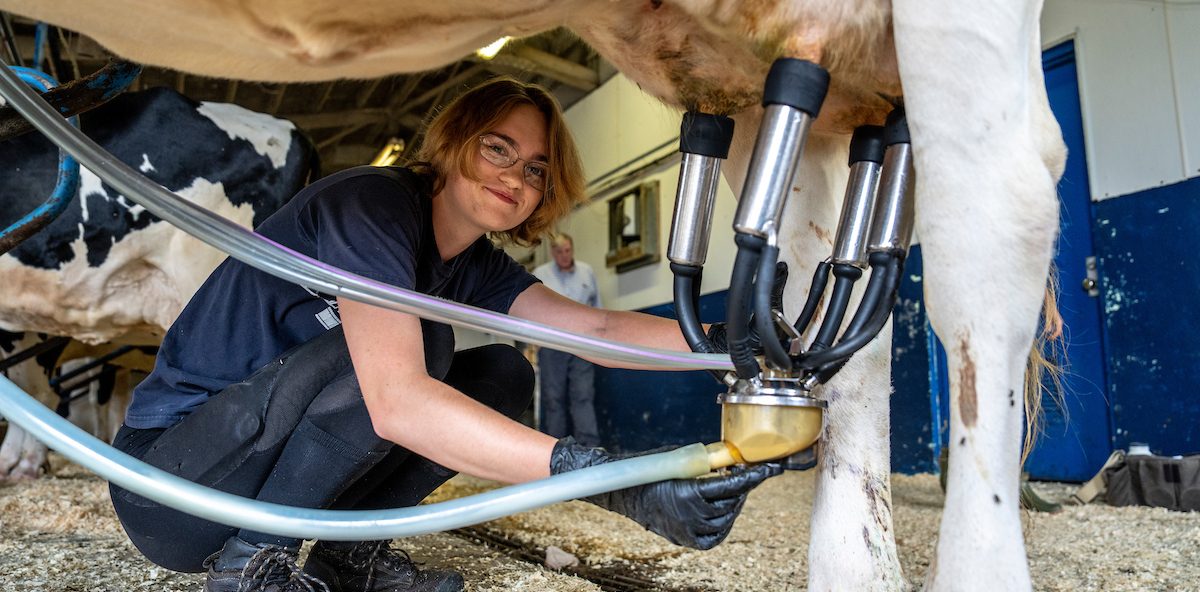M.S. in Animal Science

The Animal and Veterinary Sciences Program is successful thanks to the great work of our graduate students and post-doctoral researchers. Your research contributions are very important to farmers, extensionists, consumers, and our community. We invite you to join our program and share your experiences with a diverse community of researchers. Our M.Sc., M.P.S., and Ph.D. graduates have all the background needed to succeed in the animal and biotechnology industry, academia, non-profits, and state and federal agencies.
FAQs
How does an MSc fit into my educational path?
An MS allows you to gain additional experience in animal science and professional skills and can be paired with your undergraduate degree to provide additional specialization. For example, students with a background in aquaculture, agriculture, biology, ecology, microbiology, nutrition, or other topics may obtain an MSc in Animal Science to complement their previous academic experience to better understand the connection between livestock and wild animals for disease or ecosystem management.
An MSc can also help make you more competitive when applying to professional schools, such as veterinary and medical programs.
How does an MSc fit into my career path?
An MSc can help make you more competitive in many professions related to animal and human healthcare, the livestock industry, biotechnology, biomedical research, and other animal-related activities, especially when advanced scientific training is needed. It is particularly helpful for anyone interested in expanding their experiences related to animal-related issues requiring extensive basic and applied research training. For instance, managing animals for research or providing technical advice for livestock applications. An MS in Animal Science may also be helpful for anyone working on agriculture topics in education and political career paths.
How long does it take to complete an MSc?
The MS requires 30 credits of coursework, and students typically take up to 9 credits per spring and fall semester and 1 – 6 credits in the summer. The MS can be completed in as little as two years but may take up to 3 years, depending on the speed and intensity of your research. The University allows students to take up to 6 years before terminating their degree.
Do I have to write and defend a thesis?
Yes, to obtain your MSc, you must complete a written thesis and public presentation, as well as a question session with just your thesis committee. Resources for completing your thesis and formatting instructions may be found through the Graduate School, and previously completed theses can be found in the Digital Archives.
What do I have to do for the research requirement?
For the research requirement (AVS 699, Graduate Thesis/Research), you and your faculty advisor will set objectives for gaining professional experience via a graduate thesis.
For More Information Contact:
Dr. Juan Romero, Graduate Coordinator
graduate@maine.edu


